Are you facing a mental health issue, tackling everyday stress, or adapting to a major life change? If so, you need to indulge in self-care techniques. One such technique is journaling for mental health. While for certain people it’s a record of certain aspects of daily life, others consider it as a spontaneous exercise with creative writing.
No matter what you think of it, journaling is a good expressive coping method to help an individual process negative emotions. As a result, they can let go of such negative feelings while feeling light at heart.
However, before understanding how journaling can help with mental health resilience, find out what it is.
What is Resilience?
Generally, everyone faces some or the other type of stress or trauma in life. It can be due to a loss, heartbreak, or challenges while pursuing certain dreams/goals. However, the ability to come back with more strength during such adversities is called resilience. It is all about attaining a positive perspective on whatever is thrown at you.
Knowingly or unknowingly, you have gotten so far in life with some resilience within you. Resilience often lies in everyone’s subconscious mind as a quick response to everyday life stressors. However, when you realize to be resilient in life, it becomes your conscious strength. So, you can reach new heights while achieving your goals.
Journaling for Attaining Resilience
Many people are likely to feel stuck during tough times. During these times, it’s common to have self-doubting feelings. But such feelings will further catastrophize the whole scenario. And, this can prevent you from growing or coming out of that situation.
Since we cannot identify such beliefs, we often waste too much time facing challenges. However, if you opt for journaling for wellness or mental health, you will start understanding your thoughts. You can easily identify the patterns of your thinking and what’s holding you back. When you know the cause, you can try finding a solution for it and bounce back stronger than ever before. Hence, journaling is a powerful way to help you become resilient and more courageous.
Questions That May Occur When Starting a Journal
Here are some common questions that may strike your mind when you are new to journaling:
1. What to write about?
Well, there are several prompts to help you recognize and strengthen resilience. It’s best to start with something that’s occurring in your mind. You can take your sweet time to write something in detail. But with time, you will start expressing your thoughts without thinking too much.
2. How do challenges let us grow?
You will find the answer to this question when you understand how a certain challenge has helped you to become stronger or smarter. Over time, you will also come to understand how challenges have contributed to shaping you into a wiser person.
3. How did I overcome challenging experiences before?
When you start finding the answer to this question while journaling for mental health, you will start gathering evidence to support how you’ve always been resilient. To understand, first think about what happened earlier and what was your initial response. Next, you have to think of what helped you to overcome that situation. And, what was the result, and what you learned from the situation?
4. What helped me to bounce back during a challenging time?
While journaling, you will start thinking about your support system and how that helped you overcome a situation. For instance, did you meditate or exercise to calm your mind? And, did it help you stay stress-free during challenging times? Or did you reach out to a friend or family member for advice? Answering these questions will help you find the source of your resilience.
5. What lessons did I learn from my past mistakes?
Did your mistakes teach you not to party the night before an important presentation or exam? Did they help you see what you want to do in life? Or did they enable you to gain clarity about what you need from a relationship? By answering these questions, you can find out the learning from previous failures or mistakes.
Conclusion – Resilience is Worth It
Journaling is a good way to improve resilience, as it acts as an external observer to see the bigger picture in life. Meanwhile, you can explore the best of who you are. It is best to try journaling – either traditional pen and paper way or via a modern digital app. Whatever is suitable for you, journaling can help you become the best resilient version of yourself.



